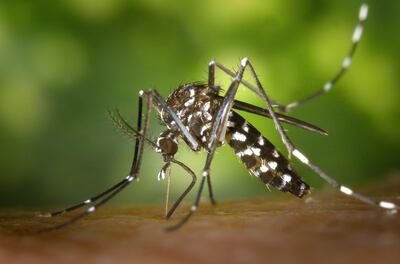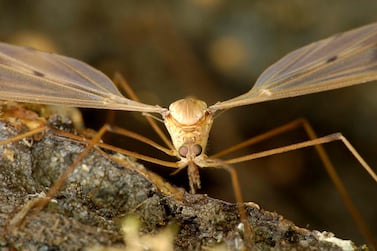The first three cases of native Zika virus in southern France have been confirmed. The three people infected had not travelled to any country where Zika was known to be endemic, said the European Centres for Disease Control and Prevention. This makes the incident the first time Zika virus has been detected in Europe where it has not been linked to travellers bringing the infection from another continent.
The confirmation has some experts warning that climate change will continue to cause more cases to spread across the continent. Zika and other tropical diseases are likely to flourish as temperatures in Europe rise said researchers at the University of Oxford.
For the majority of travellers visiting France, or other countries where Zika virus is active, the-risk of severe infection is low. And with the right precautions, even those tourists most at risk can reduce their exposure to the virus.
What is Zika?

The Zika virus is a mosquito-borne infection transmitted to people primarily through an infected Aedes aegypti (the yellow fever) mosquito. However, France's locally acquired cases of Zika are believed to have been spread via another type of mosquito, commonly known as the Asian tiger mosquito. The virus can also be transmitted through sharing body fluid between humans. The Zika virus can cause serious defects in unborn babies if mothers are infected during pregnancy, according to the ECDC.
Which countries have Zika?
Europe’s first cases of native Zika have been confirmed in Hyeres, on the French Riviera. Since 2015, there have been almost 2,500 Zika cases detected in Europe but those infections were all picked up and brought back by tourists visiting other continents. This is the first time a European country has a risk of locally acquired Zika.
'We Now Have a New Exotic Disease in Europe': Native #ZikaVirus Spreads Due to #ClimateChange https://t.co/3pFTdwQ3Pb by @EcoWatch
— Socially Conscious (@SoCoBrands) November 9, 2019
However, compared with the Zika epidemic that began in 2015, the global risk of Zika is lower than it was before. If you are planning to travel to an area where there is a suspected risk of Zika or if you are not sure whether the infection is active in a place, visit this map to see the current risk levels. You can also use it to search for specific destinations to get information on a country you're planning to visit.
Who is at risk?

The Zika virus can affect anyone, regardless of gender or age. Most people who get the infection are not aware that they have it. It is most dangerous for pregnant women because of the harm the virus can have on unborn babies.
There have also been a few rare occurrences of both pregnant and non-pregnant travellers with Zika virus contracting Guillian-Barre syndrome, a rapid-onset of muscle weakness that can also be serious.
What are the symptoms?
Typically there are very few symptoms with only 20 per cent of people that contract the virus ever getting sick, according to the World Health Organization. Those who do have symptoms will experience one or more of the following:
- Mild fever
- Body rash
- Joint pain
- Sore or irritated eyes
- General flu-like symptoms
Is it curable?
There is no medication for Zika, unlike other mosquito-borne illnesses such as dengue fever and malaria. It is a low-risk infection for most travellers and typically no treatment is required. Most infected patients will not know that they have contracted Zika virus and it very rarely causes serious complications. The main treatment for those with symptoms is simple rest, hydration and pain medication.
Why is it dangerous?
Zika virus is mostly dangerous for pregnant women. That's because of the effect it can have on an unborn baby. It can lead to microcephaly, a neurological disorder that causes babies to be born with abnormally small heads which can cause severe developmental issues that are often life-threatening. Zika can also cause other problems for babies, including eye problems and hearing loss.
How do I avoid getting Zika virus?

If you're travelling to a country where Zika is active you should take extra precautions to avoid mosquito bites. “The mosquitoes spreading Zika virus are mainly active during the day until dusk, so make sure that you apply insect repellent on top of sun cream and wear loose clothes that cover the arms and legs as much as possible. If you're taking a daytime nap, travellers should ensure to use a mosquito net to avoid getting bitten,” says Dr Teeb Al Awadi, family medicine consultant at Medcare Motor City medical centre in Dubai.
Pregnant travellers should follow this advice stringently. It's also important to stay in hotels that have air conditioning and insect screens on windows or doors. Do not stay in a hotel that is located next to still pools of water, as this is where mosquitoes typically thrive.
What should I do if I get bitten?

If you get bitten by a mosquito in a high-risk area then you should monitor your symptoms closely. Even if you do not feel sick, if you’re returning from an area with Zika virus you should take steps to prevent mosquito bites for three weeks after you return, so as not to unintentionally spread Zika to uninfected mosquitoes. If a mosquito bites a person while he or she has Zika virus in his or her blood, the mosquito can become infected and then infect other people.
If you’re pregnant, or become pregnant soon after you’ve been bitten by a mosquito in a Zika-risk area, you should inform your doctor as soon as possible. “As a precaution, couples who are travelling to Zika virus areas should avoid conceiving until three months after returning from Zika virus areas,” advises Dr Al Awadi.







